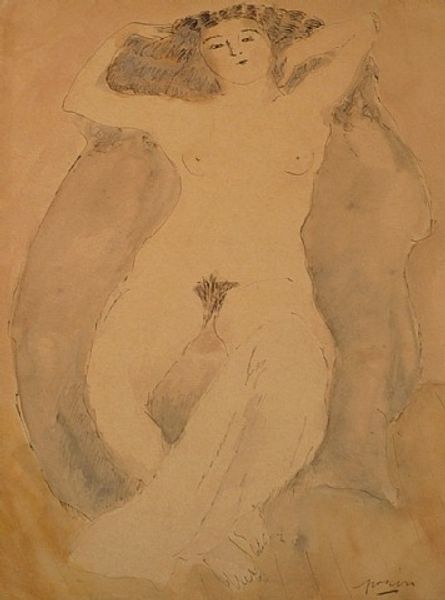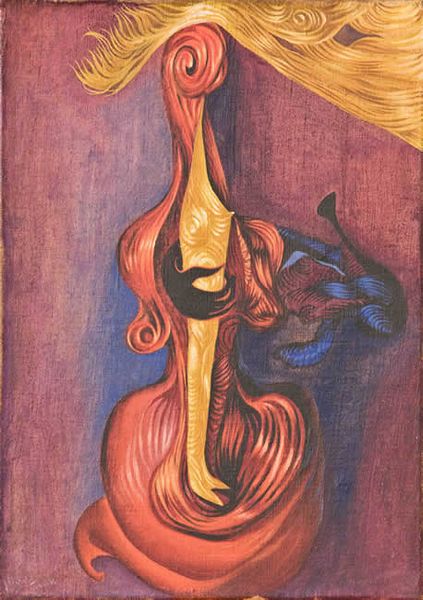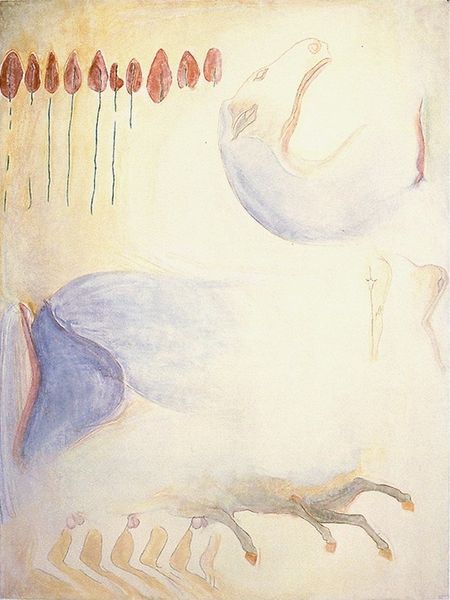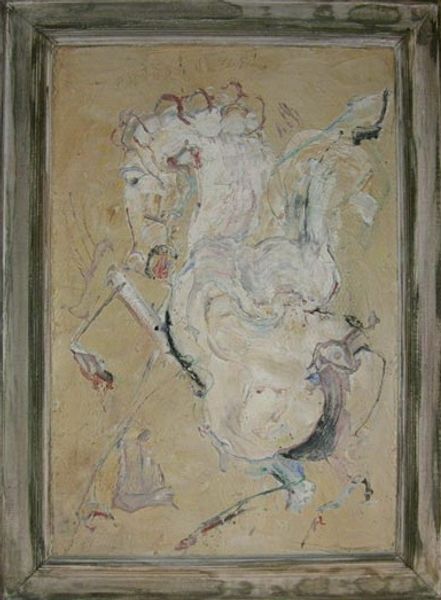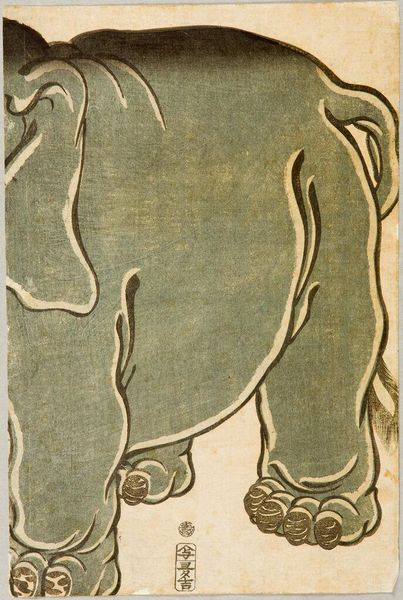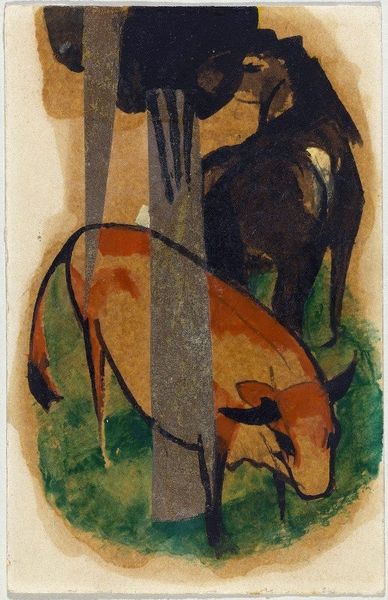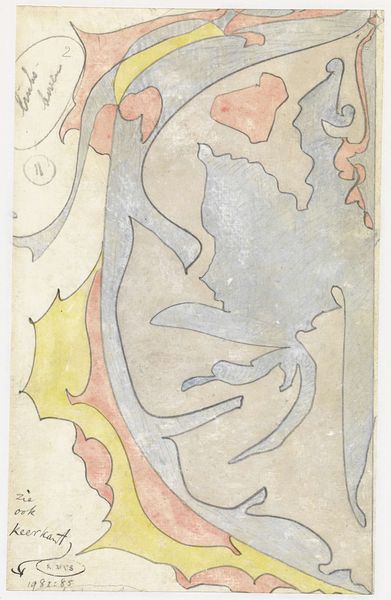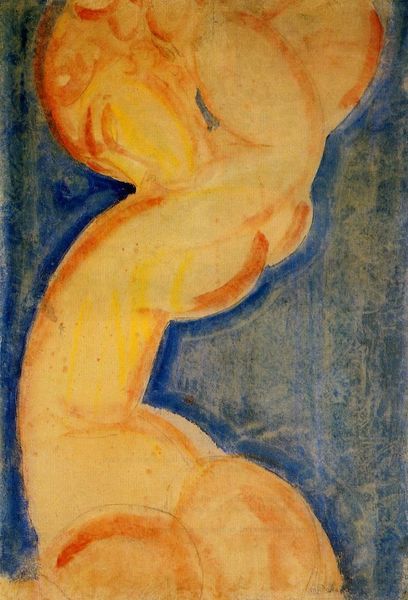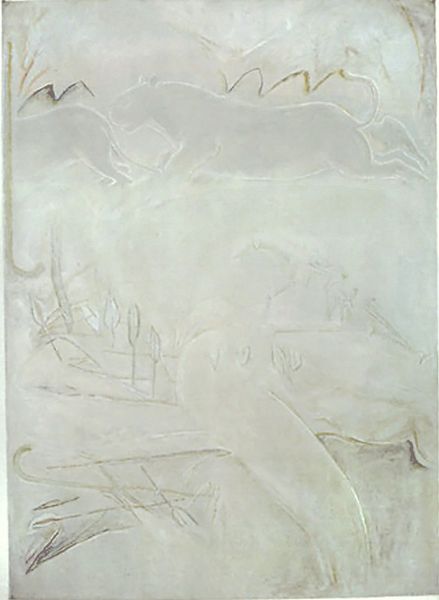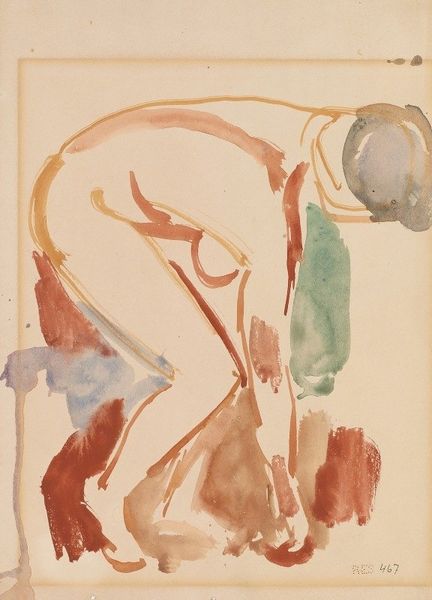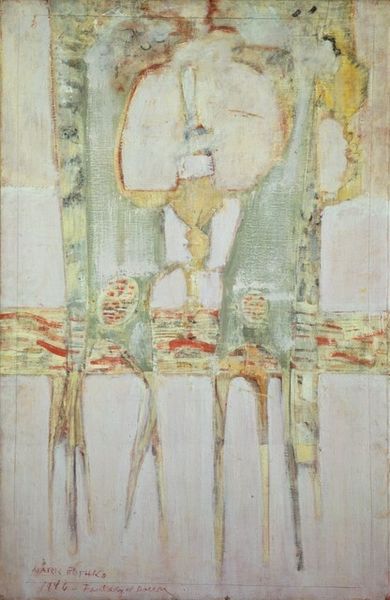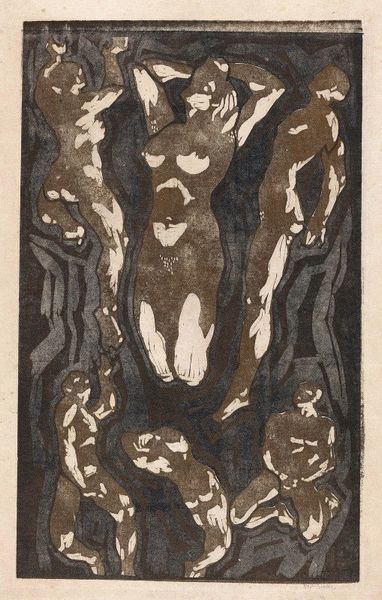
The Beethoven Frieze: The Longing for Happiness Finds Repose in Poetry. Right wall, detail 1902
0:00
0:00
painting, oil-paint
#
allegories
#
allegory
#
symbol
#
painting
#
oil-paint
#
figuration
#
symbolism
Copyright: Public domain
Editor: Here we have a detail of the right wall of Gustav Klimt’s "Beethoven Frieze: The Longing for Happiness Finds Repose in Poetry," created in 1902, using oil paint. I find the composition, with its ethereal figures and swirling golden patterns, simultaneously calming and dreamlike. How do you approach an interpretation of this segment? Curator: The painting excels through its intricate arrangements of lines, shapes, and colors, which give rise to its unique formal qualities. Note how the flat planes of gold leaf create a stunning contrast with the delicate rendering of the female figures. Do you see how this juxtaposition adds visual complexity and depth to the surface? Editor: Yes, and the stylized hair seems to unify the figures. It's almost like a flowing current connecting them. Curator: Precisely. This emphasizes the interconnectedness of the forms through careful repetition. The undulating patterns of the golden background interact with the curving lines of the figures to create visual harmony. These carefully orchestrated compositional choices result in a unified surface effect that both delights and captivates the eye. The visual vocabulary communicates beyond literal depiction. Editor: So you see the meaning emerging from the formal arrangement of the figures rather than external references? Curator: Precisely. The beauty of the piece rests within its material qualities and structural relationships. It's the shimmering gold against the pale figures that provides a certain allure, wouldn't you agree? Editor: I see that now! It’s less about what they represent and more about how their forms interact on the canvas. Curator: Exactly. This reinforces the idea that aesthetic experience can stem from a pure appreciation of form and materiality. Editor: This has definitely changed my perspective. I was too focused on trying to find hidden meanings. Thanks for guiding me!
Comments
No comments
Be the first to comment and join the conversation on the ultimate creative platform.
